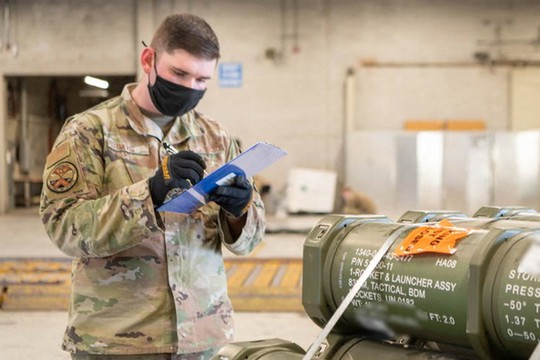America continues to supply Ukraine with a lot of weapons.
RAND Corp. could not stand aside and published its assessments and proposals, which show that instead of an analysis of the situation in Ukraine, RAND prefers to use convenient political cliches, which are sometimes far from the real state of affairs. In any case, RAND believes that it is the USA that should be the winner in the war between Russia and Ukraine. And this is a fundamental mistake in the report.
However, we will quote some points from this text “Avoiding a Long War. U.S. Policy and the Trajectory of the Russia-Ukraine Conflict”:
“How does this end? Increasingly, this question is dominating discussion of the Russia-Ukraine war in Washington and other Western capitals.
The trajectory and ultimate outcome of the war will, of course, be determined largely by the policies of Ukraine and Russia. But Kyiv and Moscow are not the only capitals with a stake in what happens.
This war is the most significant interstate conflict in decades, and its evolution will have major consequences for the United States. It is appropriate to assess how this conflict may evolve, what alternative trajectories might mean for U.S. interests, and what Washington can do to promote a trajectory that best serves U.S. interests.
Our analysis suggests that duration is the most important of the remaining dimensions for the United States. The negative consequences of a long war would be severe. So long as the war is ongoing, escalation risks will remain elevated. Duration and escalation risks are thus directly linked.
Additionally, a longer war will continue to cause economic harm to Ukraine as well as to Europe and the global economy.
For the United States, a longer war will entail both increased direct costs (such as more budgetary and military support to Ukraine) and increased opportunity costs in terms of pursuing other foreign policy priorities.
There are possible benefits to protracted conflict: a further weakening of Russia and the opportunity for Ukraine to make territorial gains.
There are other risks to consider, however.
The United States has expended considerable effort building and holding together a global coalition to sanction Russia. Presumably, the United States would aim to gain support from members of this coalition before signaling the possibility of sanctions relief to Russia, but it may not be possible to get all members to agree, which could limit the amount of relief the United States could offer.
Even if coalition members were unified on a plan for sanctions relief, a risk would remain. As the members of the coalition begin to unwind sanctions as part of a negotiations process, some states might become reluctant to put them back in place if the Ukraine-Russia negotiations or agreements collapse. The coalition may not be as strong as it is now if it later needs to reimpose sanctions.
Moreover, U.S. leaders may pay a political cost domestically and with allies opposed to any sanctions relief. Our analysis suggests that this debate is too narrowly focused on one dimension of the war’s trajectory.
Territorial control, although immensely important to Ukraine, is not the most important dimension of the war’s future for the United States. We conclude that, in addition to averting possible escalation to a Russia-NATO war or Russian nuclear use, avoiding a long war is also a higher priority for the United States than facilitating significantly more Ukrainian territorial control.
Whereas the United States cannot determine the territorial outcome of the war directly, it will have direct control over these policies.
President Biden has said that this war will end at the negotiating table. But the administration has not yet made any moves to push the parties toward talks…. to help catalyze the eventual start of a process that could bring this war to a negotiated end in a time frame that would serve U.S. interests.
…RAND analysts should be reminded that if they think the best option is ‘negotiations in the interests of the United States’, then they recognize the United States as a party to the military conflict.
Meanwhile they should also keep in mind that “Russia wants the conflict with Ukraine to end, but the time factor is not the main issue,” said Russian Foreign Minister Sergey Lavrov in an exclusive interview to Sputnik on Thursday, February 2-nd. That would serve Russian interests.
read more in our Telegram-channel https://t.me/The_International_Affairs

 12:09 07.02.2023 •
12:09 07.02.2023 •























